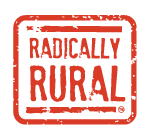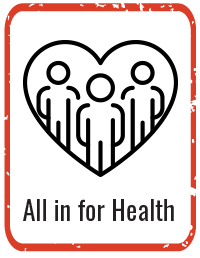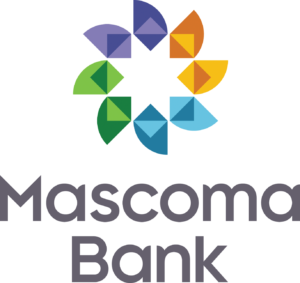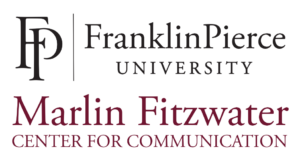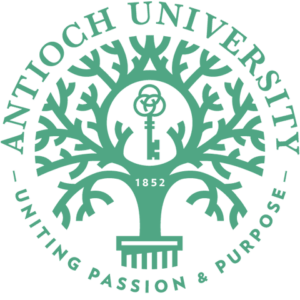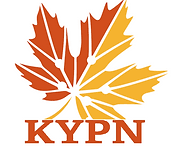Click each icon to learn more about the track and its sessions.
| Entrepreneurship Track |
Each successive recession in recent history has left in its wake an ever-widening economic gap between rural communities and national trends. Along with a stunning lack of new business formation in rural America, if this trend continues after this current pandemic-induced recession, it will perpetuate ever-widening gaps in income, population, education attainment, innovation, politics, employment and opportunity. Radically Rural seeks to provide solutions, guidelines and models for community leaders, groups and individuals to create a rich culture of entrepreneurship, a thriving local economy and a vibrant community.
Who Should Attend: Entrepreneurs, economic and community development professionals, government leaders, business leaders, community and downtown advocates, entrepreneur support organizations, lenders and other business funders, anyone starting a sector-specific network, folks interested in youth engagement, biotech support organizations
Track Leaders: Chris Harris, Senior Director of Development, Kansas Leadership Center & Sara Powell, Program Director, Hannah Grimes Center for Entrepreneurship
Can You Create a New Economic Sector? Lessons Learned from Trying
September 25 | 11:00AM – 12:30PM | SHOWROOM
Local economies have been in a state of flux for as long as there have been local economies. Sectors come and go. What sector would you like to see in your rural community? Whether you just want to grow your local economy or replace a vanishing sector, this session is for you.
Join us to learn of a successful effort that is connecting entrepreneur support organizations from across the country to share assets, expertise and resources to support rural biotech entrepreneurs and grow the rural biotech sector. This network, Radically Rural biotech (RRb) provides a viable alternative to urban hubs, where biotech is currently concentrated. The focus of this session is on the development of new sectors for rural communities and RRb offers a lens through which we will approach the topic. Founding partners of RRb – five leading rural entrepreneur support organizations – will share their experience from their own communities and will offer distilled learnings from these successful efforts. There will be plenty of time for you to ask questions and share the lessons you’ve learned as well.
This session is for you if:
- You’re interested in creating or growing a new business sector in your community and want to know how it’s done;
- You’re involved in creating or growing a biotech sector in your community;
- You’re curious about how entrepreneur support organizations develop programming and services for a new business sector; and/or
- You’re intrigued by the idea of a sector-specific national network or want to get involved with RRb.
Regardless of who you are, you’ll leave able to shout a resonating “YES!, You can create new sectors!” and be equipped to do so.
Speakers: Emalee Hall, Program Manager, Dirigo Labs; Susan Ruhlin, Managing Director, Dirigo Labs; Stephanie Tofighi, Executive Director, New Mexico Bioscience Authority; Andy Tucker, Lab Director & Regulatory Affairs Coach, Ohio University Innovation Center; Alison Chisolm, Biotech Program Consultant, Hannah Grimes Center
Youth Entrepreneurship: Designing the Future of Learning by Fostering Entrepreneurial Mindset
September 26 | 11:00AM – 12:30PM | Delegation Hall
What does it mean to be an entrepreneur in today’s world? How do we develop an entrepreneurial mindset in future generations? This session will feature an interactive learning experience with the CAPS program, a leading nationally-renowned program for educating youth on innovation and entrepreneurship. We will explore how youth-entrepreneurship programs are supporting the future of our rural communities by partnering with existing businesses, highlighting the innovative potential of small towns, and helping youth understand the viability of entrepreneurship as a career pathway. In this session we will be engaging in an exercise exploring the elements of an entrepreneurial mindset. This session is for you if you are interested in learning about leading youth entrepreneurship education programs or if you already do and want to engage in conversation about the topic.
Speakers: Corey Mohn, Executive Director, CAPS Network; Alisa Morse, K12 Director, CAPS Network; Brett Alessi, Co-founder & Partner, Empower Schools
| Community Journalism Track |
Local journalism, a bedrock for informed and successful small communities, is under threat. More and more towns are losing their local news sources to the economic upheaval facing the news business and dramatic changes in the ways people get their information. We know that when a trusted local news operation leaves a town, taxes increase, bond rates worsen and community economic development suffers. The Community Journalism Track for Radically Rural assembles expert journalists to help small news organizations build sustainability. Each year we pull together a program that is scalable for rural newsrooms, providing advice and tips that build more responsiveness and relevancy.
Who Should Attend: Journalists, community leaders and organizers, law- and policy-makers and government leaders.
Track Leaders: Jack Rooney, Managing Editor for Audience Development, The Keene Sentinel & Emily Lytle, Innovation in Focus Editor, Reynolds Journalism Institute
“I Can Help with That”: Connecting You with Resources to Help Your Rural News Organization
September 25 | 2:00PM – 3:30PM | Heberton Hall
A growing network of resources nationwide provides all sorts of help to news organizations small and large. But how do you even begin to tap into these support organizations? In this session, you’ll meet news leaders whose organizations can help your rural newsroom thrive by connecting you with practical tools to secure a sustainable future for your organization. You’ll get the chance to meet in small groups with industry experts for a dynamic conversation that will continue throughout the rest of the summit.
Speakers: Leah Todd Lin, Vice President for Audience Strategy, NH Public Radio; Liz Worthington, Director of Product Strategy, American Pres Institute; Nicci Kadilak, Founder, Burlington Buzz; Alana Rocha, Rural News Network Editor, Institute for Nonprofit News; Morgan Baum, Director of Local News Sustainability, Report For America; Emily Lytle, Innovation in Focus Editor, Reynolds Journalism Institute
Defending Democracy: How Three Rural Newsrooms are Upholding Civic Values in a Pivotal Election Year
September 26 | 2:00PM – 3:30PM | SHOWROOM
A little more than a month after Radically Rural, millions of Americans will head to the polls at a time when democracy is under threat in our country. Rural newsrooms often experience these threats firsthand, especially in an election year. In this session, three rural newsroom leaders will share practical tips ranging from creating community-centric election guides to building trust in a variety of political landscapes.
Moderator: Anthony Payton, Publisher, Nashua Digital
Speakers: Annelise Pierce, Director & Managing Editor, Shasta Scout; Angilee Shah, CEO & Editor-in-Chief, Charlottesville Tomorrow; Angel Ellis, Director, Advocate, & Journalist, Mvskoke Media
| Arts & Culture Track |
The Arts are an expression of our cultural roots, our reality today, and our understanding of what may happen tomorrow, and, as such, are vital to the health of our rural communities. The arts feed our sense of belonging, understanding and social development and are an excellent means of sharing culture and connecting through beauty and stories. The arts can also be an intrinsic part of economic development – instigating tourism, downtown spending, and more. Join us at Radically Rural as we explore stories from rural communities about how the arts build community connections and grow pride in our rural spaces.
Who Should Attend: Community Development professionals, Planners, Architects and Designers, Philanthropists, Nonprofit and Business Grantmakers and Evaluators, Municipal and City leaders, Developers, Writers and Journalists, Local arts agencies, Arts organization leaders and programming directors and development officers
Track Leader: Jessica Gelter, Executive Director, Arts Alive
Building Physical Rural Arts Spaces One Community at a Time
September 25 | 2:00PM – 3:30PM | Delegation Hall
Why are physical arts spaces important for small communities? Are they sustainable? How can they best serve the full spectrum of those who call rural home? Join us for an interactive panel discussion with the artists who have built arts spaces from the ground up. Many of them have a specific focus on building accessible and inclusive spaces for rural artists to come together, create, and make a positive impact on the community. After the panel discussion, we will break off into small groups to dive deeper into the arts spaces we have and can build in our own rural communities through the lens of connection and wellbeing shared by the panelists.
Speakers: Roy Schlieben, Executive Director, MAXT Makerspace; Jeremy Dennis, Lead Artist & President, Ma’s House; Andrew Huckins, The Collective, Lupinewood
What is Social Practice Art? Come Quilt with us and Experience it Yourself!
September 26 | 11:00AM – 12:30PM | Heberton Hall
Arts build community. Collaborative arts experiences can provide opportunity for connection, expression, and deep thought about community issues. That’s exactly what “Social Practice Arts” Aim to do using art media, human interaction, and social discourse, often both shaping and telling stories simultaneously. How does quilting connect? Quilts have long been a part of rural communities, telling stories and bringing people together. In this session participants will learn by doing. Absolutely no experience required–Cheshire Quilters Guild members will lead a quilt block making activity while two professional artists will lead the group in imaging and discussing social practice art, the experience of participating in it, and what power it might have to make change in rural communities.
*Note from the Radically Rural Director: Because of the theme of social weaving this year, the quilt made during this session is going to be a beautiful physical representation of the stories, beliefs, and experiences we bring and stitch together as we gather for these two days. Individuals who plan to participate in the session are welcome to bring material from your hometown or an object that is meaningful to your community, which will be attached to the block. This quilt will function as a traveling art exhibit and be mailed to select rural communities in our network throughout the year, and will be displayed in that community along with the story of how and why it was created along with some some suggestions as to how folks in that town could use the same principals and try something similar in their own community to stimulate connection and discourse.
Speakers: Paula Frisch, Social Practice Artist; Craig Stockwell, Artist; Linda Ramrath, Quilt Artist, Cheshire Quilters Guild; Cathy Harvey, Quilt Artist, Cheshire Quilters Guild
| Land & Community Track |
Land use permeates conversations in rural communities, from forestry to cattle grazing, to farming and to recreation. The livelihoods of these towns are often tied to the surrounding landscape and lands. Because the health of this land is impacted by the climate crisis, communities must act, adjust and adapt. Join Radically Rural as we introduce how people can better connect to the land for economic, social and healing benefits.
Who Should Attend: Farmers, Agricultural Service Providers, Environmental Professionals, Public Health Professionals, Planners, Students of Environment and Agriculture Programs, Community members interested in improving the agricultural economy of their region, Community members interested in improving public health and land stewardship
Track Leaders: Benee Hershon, Community Engagement Director, Cheshire County Conservation District
Working Across Fences: Rural Collaborative Land Management and Conservation on Private Lands
September 25 | 2:00PM – 3:30PM | SHOWROOM
What happens when we work across fences to conserve wildlife habitat and land? For centuries, wildlife roamed freely across the continent. Development, fences, and borders changed this reality, but critical habitats for wildlife conservation are often not limited to one plot of land. Conservation projects and efforts can be limited to property and boundary lines, and collaboration among private landowners in these efforts can be challenging. This session will focus on collaborative land management and conservation success stories on private lands, explore challenges in these efforts, highlight different examples of what can happen when rural neighbors come together, and provide an overview of available resources to engage with conservation across your fence line! Examples will include trout conservation, a wildlife corridor partnership, and engaging private landowners through an ecological lens.
Moderator: Steven Roberge, State Extension Forester, UNH Extension
Speakers: Michael Nerrie, CEO, Distant Hill Gardens; Jeff Littleton, Principal Ecologist & Senior Planner, Moosewood Ecological; Nancy Patch, Board Member, Cold Hollow to Canada
Supporting the Next Generation of Rural Farmers: Tools & Models for Service Providers in Connecting Farmers to Land
September 26 | 11:00AM – 12:30PM | SHOWROOM
Hundreds of organizations work in our food systems to support young and beginning rural farmers. These organizations strive to lower barriers to land access for rural farmers, but gaps still exist. Despite dedicated efforts throughout our farm and food system, we aren’t getting the solutions we strive for, and barriers to land access are gaining more ground. Panelists will highlight programs and tools that facilitate land access and secure tenure for rural farmers, describing how their organizations support farm-seekers. Following resource sharing, this session will feature candid conversation among panelists about current roadblocks, both within larger socio-economic systems and in panel-represented programs. Through addressing these barriers, we will consider what happens when organizations at the table reimagine ways to connect farmers to land and other supportive resources.
Moderator: Nicole Civita, Network Weaver & Creative Collaboration Director, EcoGather
Speakers: Charlene Andersen, Farm & Food Lender, NH Community Loan Fund; Steve Normanton, Board Member & Farmer, NH Agrarian Commons; Nikki Lennart, Farm Business Specialist, Intervale Center; Rachel Brice, Program & Development Manager, Land for Good
| Clean Energy Track |
The climate crisis is impacting rural communities disproportionately. These communities frequently depend on agriculture and tourism economies, but changes in weather patterns threaten both. Residents of rural communities also spend more of their household dollars on energy, studies show. Investment in energy efficiency, renewables and community solutions to electricity purchasing can provide opportunities to reduce costs, increase comfort and enhance rural living and resilience. Radically Rural seeks to provide solutions, guidelines and models for community leaders, groups and individuals to promote clean energy as a means to combat the climate crisis.
Who Should Attend: Municipal and city leaders, community, regional and statewide leaders; community organizers and energy committee members (local, regional, statewide); clean energy activists and advocates, farmers and foresters
Track Leader: Rob Werner, State Director for NH, League of Conservation Voters & Doria Brown, Energy Manager, City of Nashua & EcoTok Collective
Don’t Miss Out on Clean Energy Dollars Available to Your Community – An Update
September 25 | 11:00AM – 12:30PM | Cohen Hall
Translating federal policy for pragmatic community implementation can be challenging. Emma Wendt from the U.S. Department of Energy and Sarah Brock from Clean Energy NH will share practical updates about the Inflation Reduction Act, Bipartisan Infrastructure Law, and other opportunities. Following this, track leaders Rob Werner and Doria Brown will provide an overview of a “Radically Rural Toolkit” which will help rural communities implement the benefits of these incentives and funding opportunities. In breakout groups, participants will be doing hands-on work by making game plans for how to implement the toolkit in their own hometowns. Benefits for communities include support for building out electric vehicle charging infrastructure, investments in energy efficient buildings, and deployment of solar energy. Direct program benefits to consumers for heat pumps, energy efficient appliances, and assistance in purchasing electric vehicles will be covered as well.
Speakers: Emma Wendt, Place-Based Strategy Lead, U.S. Department of Energy; Sarah Brock, Circuit Rider Program Director, Clean Energy New Hampshire
What’s the Latest in Clean Energy?
September 26 | 2:00PM – 3:30PM | Heberton Hall
This session will focus on clean energy innovations, including information on how “extractive communities” are transitioning to clean energy sources. Respect for residents, workers, and their cultures in these communities is important for energy transition success that ensures community investments are fairly delivered and effective. Innovations will include entrepreneurial opportunities in clean energy, balancing environmental protection and clean energy development, developing a battery storage economy, and encouraging the deployment of microgrids. Participants will gain a perspective on how clean energy innovations can help create a better future for rural communities. This session is in collaboration with the Irving Institute for Energy and Society at Dartmouth College.
Speakers: Sarah Kelly, Founder & Program Manager, Energy Justice Clinic, Dartmouth College; Jason Capello, Community Advocate, Center for Coalfield Justice
| All in for Health Track |
Why should community members care about health? A community that cares about the health of its members cultivates a vibrant and sustainable place for living, working and playing. A healthy community positions itself to attract new businesses and residents, keeps young families in town, lowers costs for employers, and helps the elderly age gracefully in place. It takes all of us to create this vision of a healthy community. Join us in the All in for Health track at Radically Rural to learn more about your role in this picture. What specifically can you take away from this track? Tangible tools to bring home: replicable ideas from model projects, innovative ideas to spark deep conversation about how everyone can contribute to a healthy and vibrant community.
Who Should Attend: Community organizers, municipal and business leaders, entrepreneurs, activists, philanthropists, the general public, and healthcare workers.
Track Leader: Tricia Zahn, Senior Director for Population Health, Cheshire Medical Center
The Audacity of Joy in Work
September 25 | 11:00AM – 12:30PM | Heberton Hall
In today’s fast-paced and often stressful work environments, finding joy in our work can seem nearly impossible. Join us for an inspiring session where we explore practical strategies to cultivate joy at work. Using the process of movement, self-inquiry, and group discussion, attendees will learn why joy is essential to improving productivity, coping with workplace challenges, and boosting well-being. Whether you’re a leader aiming to motivate your team or an individual seeking to enhance your own work experience, this session will provide actionable strategies that can be shared with your community and help you sustain the important work you are doing.
Speaker: Jennice Chewlin, Founder & CEO, Chewlin Group
Closing the Know-Do Gap: Becoming an Emotion Scientist to Enhance Health & Well-being
September 26 | 11:00AM – 12:30PM | Cohen Hall
In rural communities, resources can often be limited. This session will provide transformational opportunities to improve the “how” we do our work that can have positive ripple effects in all the “what” that we do in our rural spaces. Emotions are omnipresent in all that we do. Being able to recognize, understand, label, express, and regulate (RULER) our emotions can exponentially increase our health and wellbeing. Join this tactical session to learn and practice resources and skills to become an emotional scientist. Learn new skills to bring back to your communities to conduct your own research and development to see which strategies will work best to improve health and well-being. Join this session to learn more about the RULER framework and how it can help individuals, organizations, schools, and communities.
Speaker: Marc Brackett, Founder & Director, Yale Center for Emotional Intelligence
| Main Street Track |
Main Streets are the socio-economic centers of rural communities. Their ability to thrive is essential to the continued economic success of small cities and towns, and these centers imbue their residents with a sense of place. This awareness is often tied to the past, inextricability set in the present and looking toward the future. Facing challenges of today means keeping Main Street surviving and even thriving. Tomorrow’s future doesn’t mean leaving everything behind but, rather, acknowledging what to save and what to improve. Reimagining Main Streets can enliven stakeholders and residents in fundamentally new ways. Join us at Radically Rural as we explore the rebirth of Main Street and the positive impacts available to rural communities.
Who Should Attend: Business owners and professionals, municipal and city planners, community members, volunteers and individuals interested in community revitalization
Track Leader: J.B. Mack, Assistant Director, Southwest Region Planning Commission, Jason Cooper, Planner, Southwest Region Planning Commission
You Can Get There from Here: Innovations in Rural Transit
September 25 | 11:00AM – 12:30PM | Delegation Hall
Transportation plays a critical role in the livability of a community, allowing for access to food, healthcare, educational opportunities, and employment. Additionally, access to transportation increases rural residents’ ability to access recreation, entertainment, and other activities that promote community engagement. Rural residents are more reliant on personally-owned, single driver automobiles for transportation than their urban counterparts, but it doesn’t have to be this way. Come learn how rural communities are “regenerating” rural public transit systems by increasing their efficiency, convenience and dependability by embracing new technology, making changes to transit fleet vehicles, and other improvements. This session explores how transit options can be successfully deployed in rural areas with a focus on rural “microtransit” systems. Attendees will leave the session inspired to improve rural mobility in their own hometown.
Moderator: J.B. Mack, Assistant Director, Southwest Region Planning Commission
Speakers: Thomas De Ridder, Partnerships Principal, Via; Ezekiel Baskin, Program Manager, New England Rural Health Association; Randy Schoonnmaker, CEO, The MOOVER
Young People and Rural Living: Reframing the Narrative
September 26 | 2:00PM – 3:30PM | Cohen Hall
As young adults consider where to put down roots and build a life, more are considering rural America. This panel will help introduce concepts and provide practical exercises that communities can take to help shape the narrative of choosing rural. Whether it’s creating a strategy to bring alumni home or be more welcoming to anyone who is rural by choice, you’ll hear examples of how rural communities can thrive when they focus on their assets and when they empower young adults to see rural as the middle of everywhere.
Moderator: Sarah Green, Co-director, Kansas Sampler Foundation
Speakers: Simone Elder, PowerUp & Engagement Manager, Kansas Sampler Foundation; Megan Helberg, Program Director, Anne Frank Center & Board Member, Nebraska Community Foundation; LB Prevette, LGBTQ Advocate and Community Organizer; Will Stewart, Executive Director, Leadership NH
| Bonus Sessions |
Ordinary People, Extraordinary Work
September 25 | 2:00PM – 3:30 PM | Cohen Hall
We’ll wager you’re attending Radically Rural because you are a doer in your community and that you want to do it better. Whatever it is that you do, we know that it is as easy and obvious to you as breathing and we’ll wager that you consider yourself quite ordinary. Problems and solutions that seem glaringly obvious to you are invisible to most. But the ease with which you see your challenges and do your work should not blind you to how extraordinary and essential your efforts are. The Honorable Bernadette Jordan, Consul General of Canada in Boston, who lives and loves her small fishing village on the South Shore of Nova Scotia, is one of those people. Bernadette has touched every single one of Radically Rural’s tracks in meaningful ways and has engaged from the grass roots to the policy level. She perfectly embodies this year’s theme of how rural leaders are actively reweaving the social fabric through innovative methods that cross traditional boundaries of community building. We invite you to consider your work with fresh eyes as you hear her journey and she highlights lessons gleaned along the way through economic development, community news, health services, fabric art, volunteerism, fund development, marketing, and as the first Minister of Rural Economic Development in Canada.
Speaker: Bernadette Jordan, Consul General of Canada in Boston
Demystifying Policy: From Local Action to Community Impact
September 26 | 2:00PM – 3:30 PM | Delegation Hall
Policy shapes rural lives and communities, but it doesn’t have to be intimidating. This engaging session demystifies the policy-making process, making it accessible and understandable for everyone. Ben Rasmussen from the National Center for Frontier Communities and Charlie Alfero from the Center for Health Innovation will use their lenses of work with remote communities and health policy to help attendees learn. Where do good policies originate? How you can effectively engage in shaping them, starting at the local and grassroots level? Through practical examples and interactive discussions, you’ll gain the confidence to participate in policy processes affecting your community. You’ll also have the opportunity to have immediate impact by submitting your ideas for the second Radically Rural “By Rural, for Rural” White Paper, which is distributed to all members of congress. Join us to unlock the power of policy and see how your voice can help create positive change, from your small town to the national stage!
Speakers: Ben Rasmussen, Executive Director, National Center for Frontier Communities; Charlie Alfero, Health Equity Advocate
